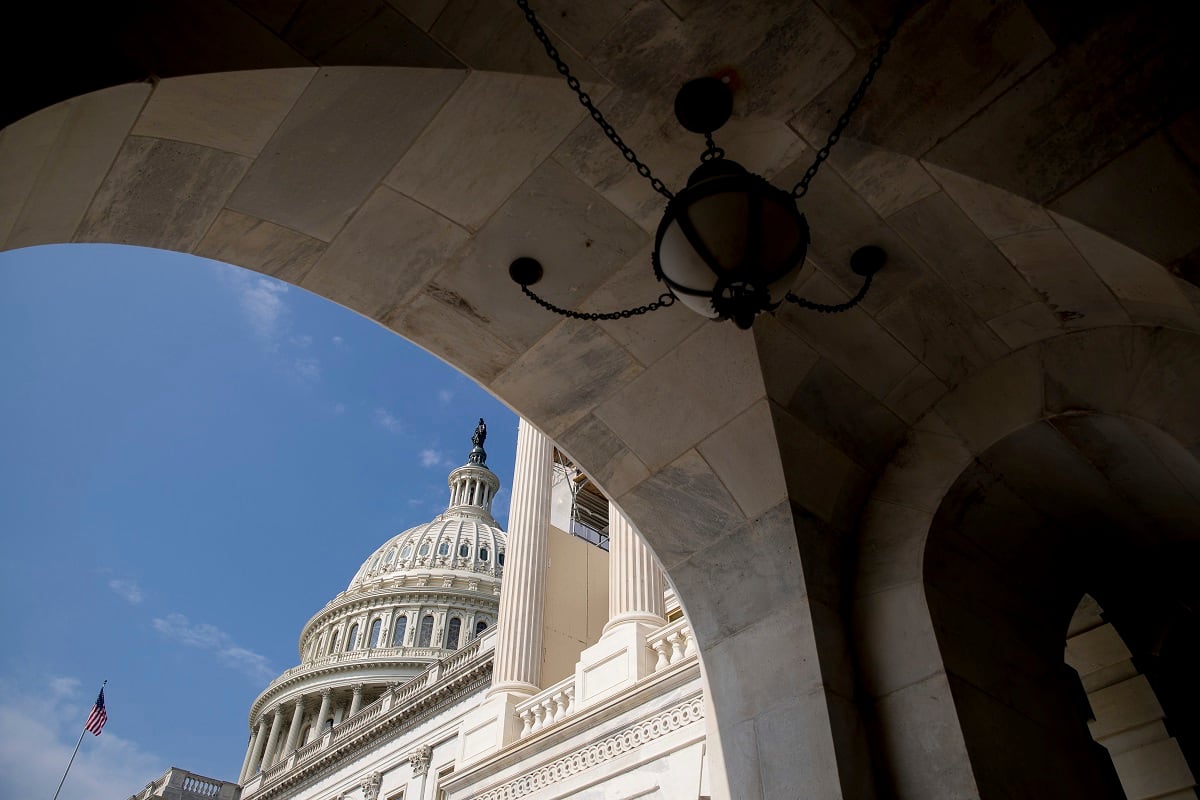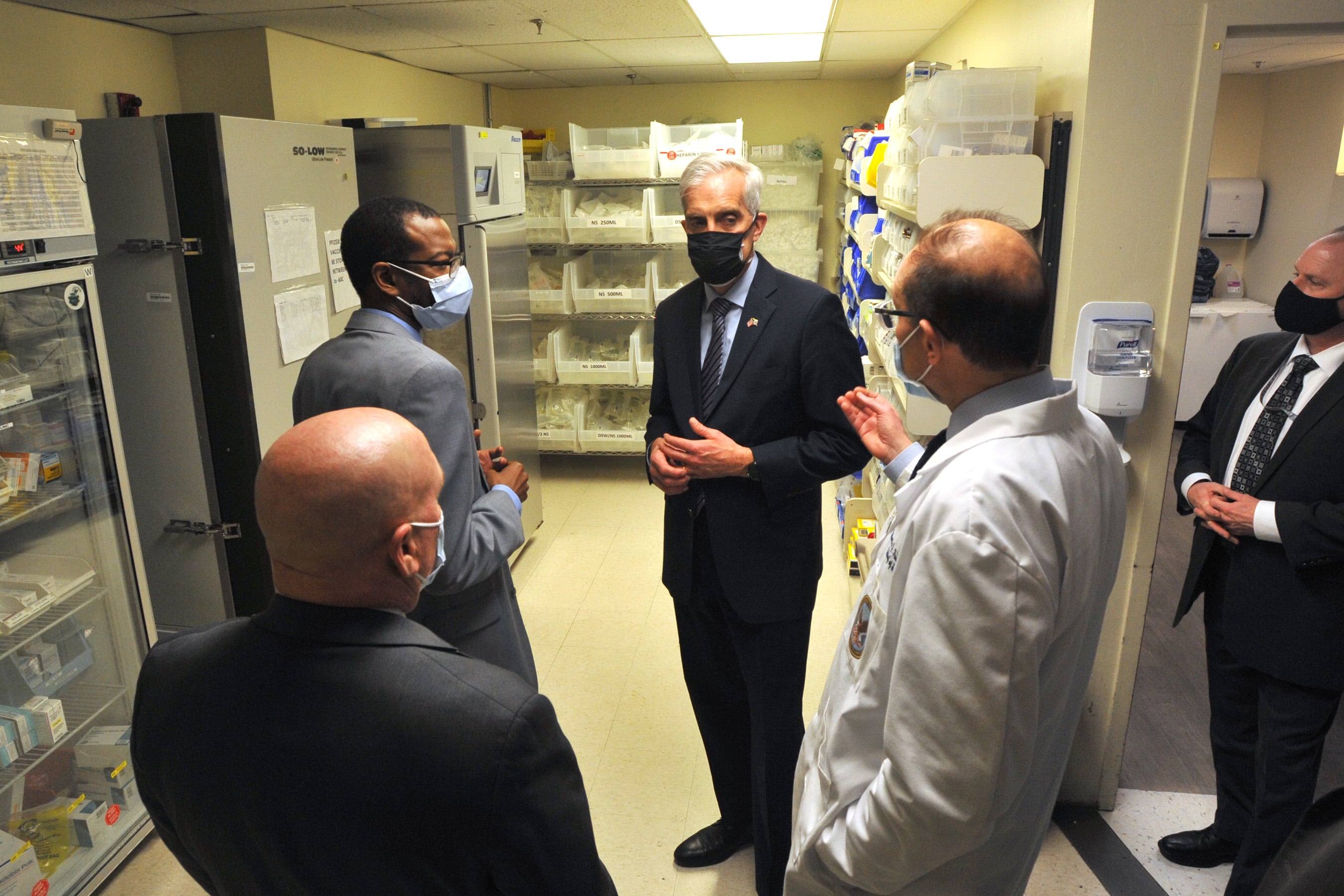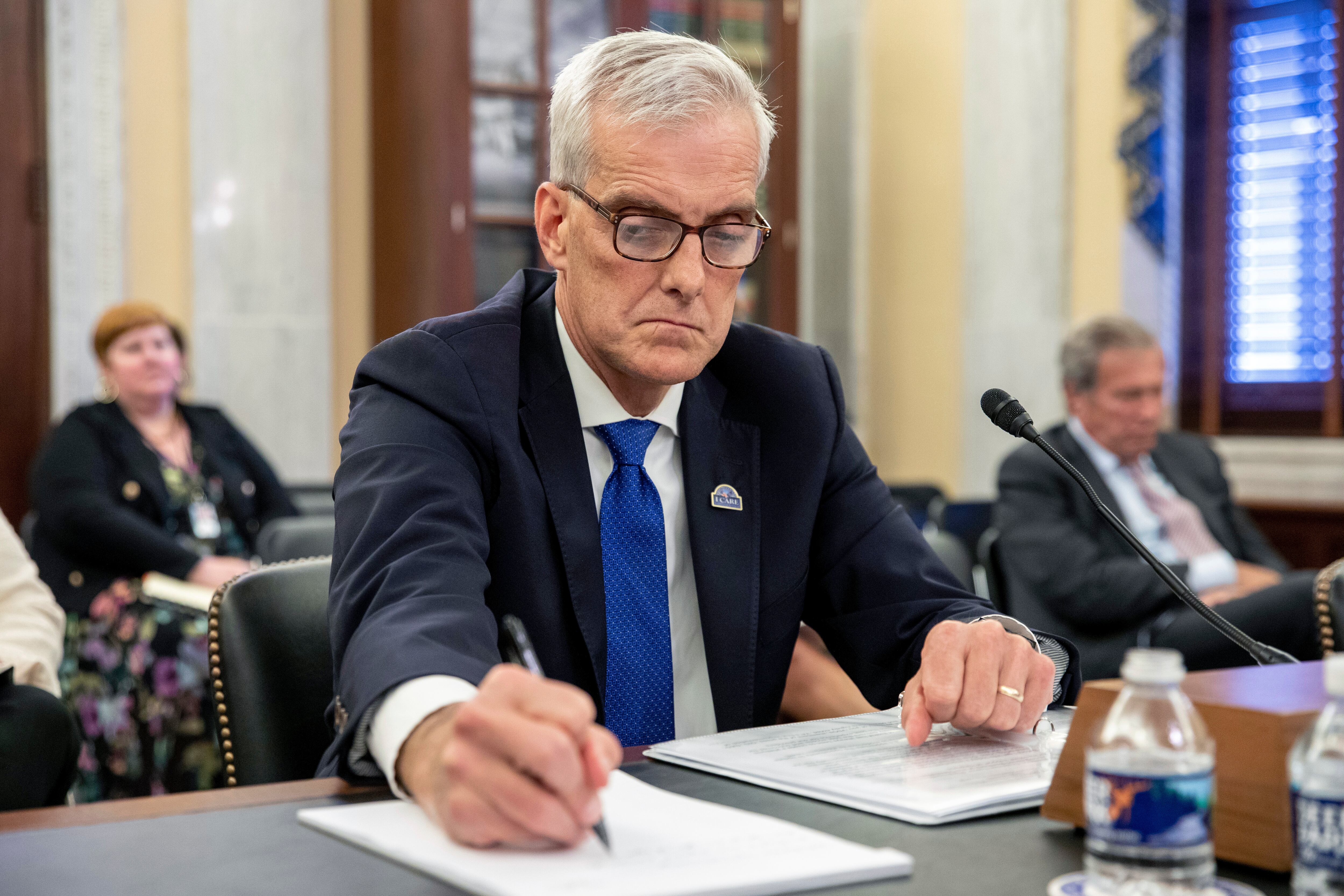If Congress fails to pass a full-year budget for the Department of Veterans Affairs in the next few months, the funding shortfall would have “serious ramifications” for veterans medical services, according to the department’s secretary.
“I’m very concerned about a full-year [budget extension], and we’ve communicated that concern to lawmakers, both Republicans and Democrats,” said Secretary Denis McDonough during a press conference on Thursday.
“There will be very serious ramifications for community care. There’ll be very serious ramifications for direct care. I am very concerned about that.”
RELATED

A day earlier, House Appropriations Chair Rosa DeLauro, D-Conn., and the panel’s subcommittee chairs released a statement urging Republican colleagues to “come to the table” and help finalize the annual appropriations process in coming weeks.
The group said a lengthy budget extension would be “nothing short of catastrophic” for numerous government agencies.
In September, lawmakers approved a short-term extension of the federal budget until Dec. 3 in order to give them more time to work out funding disputes between the two parties. Lawmakers are expected to do another extension when they return from Thanksgiving recess later this month, since many of those disagreements have not yet been resolved.
That has prompted discussion about simply running all federal operations on fiscal 2021 spending levels throughout fiscal 2022. White House officials have decried as dangerous for a host of defense and domestic priorities, since money for new program starts and expansions would not be made available to government agencies.
The administration has requested a $270 billion budget for Veterans Affairs for fiscal 2022, an increase of almost $30 billion from the current yearlong spending level. Lawmakers also authorize advance appropriations each year for the department, to ensure that any budget disruptions from political infighting does not interrupt VA medical care or benefits delivery.
Members of the House and Senate have offered few objections to the White House’s planned VA budget level, but the agency’s spending is stalled alongside other more complicated issues like defense spending.
RELATED

McDonough said running VA at fiscal 2021 spending levels for all of fiscal 2022 would leave numerous medical care expansion efforts without adequate support at a time when the department is looking to increase health care appointments deferred during the pandemic.
Officials have planned a significant boost in mental health care spending (up 13.5%, to $10.7 billion) and assistance programs for veterans facing homelessness (up 14.5%, to $2.6 billion).
He said that officials are making plans for the possible failure of Congress to adopt a new budget, but did not offer any specifics.
The VA budget has grown significantly over the last two decades. In fiscal 2001, it totaled just $45 billion, roughly one-sixth of the White House request for fiscal 2022.
Leo covers Congress, Veterans Affairs and the White House for Military Times. He has covered Washington, D.C. since 2004, focusing on military personnel and veterans policies. His work has earned numerous honors, including a 2009 Polk award, a 2010 National Headliner Award, the IAVA Leadership in Journalism award and the VFW News Media award.





